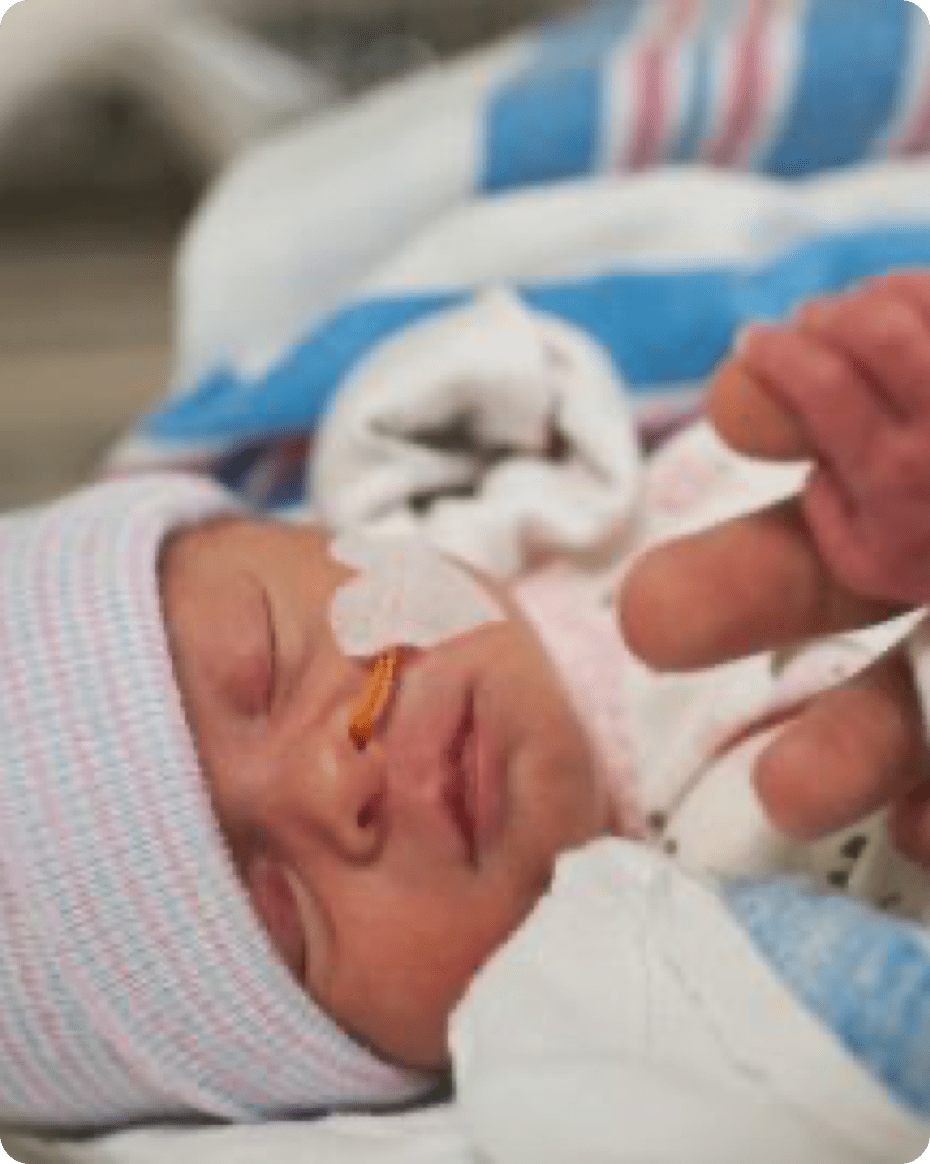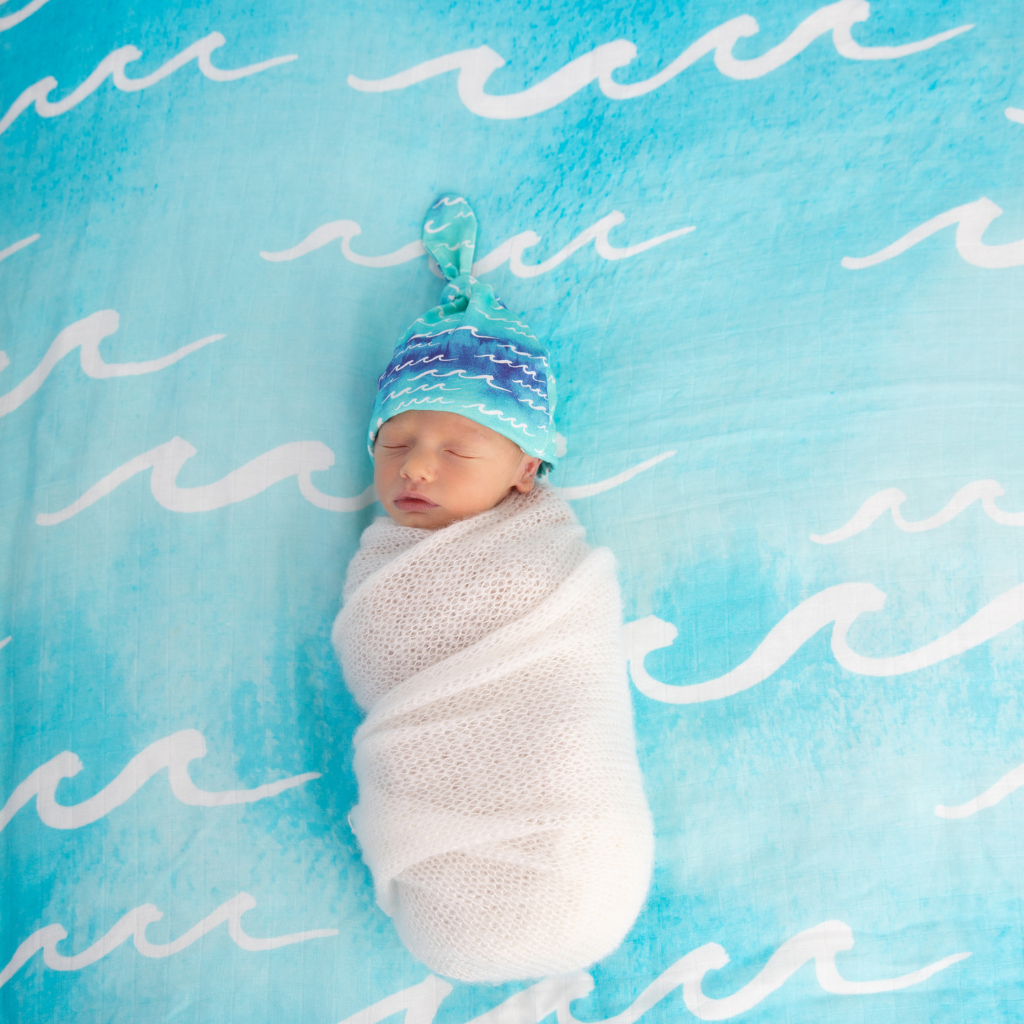When Coco Moon mom Sheryl gave birth to her son, Boogie, she found that some of her friends and family weren’t sure what to say. Boogie is one of 6,000 babies in the US born every year with Down Syndrome, and rather than hearing “Congratulations! and “Welcome to the world!”, Sheryl heard messages of sympathy and regret.
Today on World Down Syndrome Day, we want to celebrate families who have children with Down Syndrome by sharing Sheryl’s experience and tips for making new parents feel welcomed and supported.
We loved learning through her journey and are so grateful for her generosity in sharing her experiences with us. Read on to hear her thoughts on the best way to respond when a friend or family member tells you their new baby has Down Syndrome:
What is the best way to respond when a friend/family member tells you their new baby has Down Syndrome (DS)?
We all have different backgrounds, life experiences, and ways we process things. Something one parent says to another parent that was extremely encouraging and uplifting might be devastating for others. There is no perfect formula, but here is a general guide: ⠀
THINGS PARENTS WOULD LOVE TO HEAR
-
“Congratulations!” Your friend/family member is welcoming a new baby. Telling them congratulations like you would to any new parent shows acceptance, which is so important to new parents. It was really scary for us to tell family and friends that our little guy had DS. We were so afraid of how the world would accept him. Hearing things like “Congratulations,” “We just love him so much,” and “Gosh, he is just so cute” was just what my little momma heart needed.
-
Just like any new baby, compliment parents on how cute and amazing their child is. Telling a parent how cute their child is reminds them that their baby with DS is a baby first of foremost, and all babies are cute. It might seem superficial but this was HUGE for me. I was so worried people would see Boogie and judge him just on his looks, or love him less and not accept him. But he gets nothing but love from our friends and family.
-
Ask normal questions like you would ask any new parent: how is he/she feeding, are they sleeping, can I see photos, etc. New parents want to know that their child is accepted and loved. This also shows you are generally interested in how the child is doing.
-
Remember that actions speak louder than words. When family and friends do things, it makes more of an impact than words can. Help out with babysitting, do chores around the house, offer to cook, look up information, and just be available. The little things our family and friends do mean so much to us. A friend that makes an effort and wants to help, support, and learn with you is huge.
-
Ask to hold that little bundle of joy! This may seem odd, but some people are afraid to hold new babies, especially with DS. Rise above the fear and ask to hold and get to know him/her. Being excited for your friend’s new one means so much. I hold dear all the friends who were so excited and loving to our little man. Plus it gave this momma a break.
Even the kindness of a stranger means a lot. I met an amazing momma at the airport once when I was traveling from Maui to Portland alone. She was so kind and helpful, and she even offered to hold him so I could pump & go to the bathroom. Her little act of kindness made me cry.
THINGS PARENTS MAY NOT WANT TO HEAR
- “Sorry”. More like sorry, not sorry! We don’t want to hear anything that could convey pity. This makes our child seem like a burden. When we found out Boogie had DS, our doctors made it seem like it was such a bad thing. When someone says sorry, it takes away just how special Boogie is.
Instead ask, “How are you handling the diagnosis?”. If your friend is having a rough time with it, acknowledge any feeling or emotion your friend may be having and offer love and support. Just being a shoulder they can lean on and not be judged for their feelings goes a long way. Tell your friend that you are available if they need to talk. You can admit you don’t know what to say, but you love them and want to learn with them.
-
“How severely is your child affected?” I am embarrassed to admit that when we got Boogie’s diagnosis, I looked up if there were different ‘levels’ of DS. There aren’t - you either have it or you don’t.
-
“God gives special children to special parents”. This is something that some parents may love hearing, but when I hear this I cringe and think, “So you think you’re not special?” It’s a grey area.
-
“You are strong.” This may be another grey area, but I don’t think we are stronger than the next person. We just do what we have to do to get by.
-
“I will pray God heals your child.” Please pray for any of his illnesses, or medical conditions, but DO NOT offer to pray to heal my child from Down Syndrome. It’s not an illness, it’s a genetic condition - you can’t catch it.
-
Don’t ignore the diagnosis. I understand that people are uncomfortable and afraid to say something wrong. But by doing this you can make a parent feel isolated and alone. Treat their child like any other child you meet, with love and excitement for who they are.
- Avoid forcing your opinions or doing anything that will destabilize parents’ fragile support. As parents, we survive the stressful times by leaning on the ones we love and trust. Time heals the deepest emotional wounds, but time spent supported by good friends will help them heal all the quicker. Just be there for them and offer your support.
To learn more about Sheryl’s adorable boy Boogie, please give her a follow on Instagram @sherylpasamonte.











